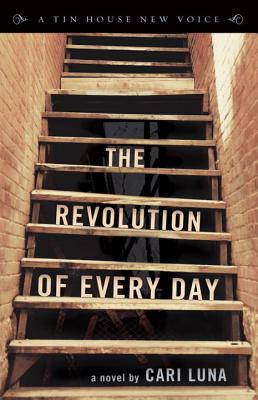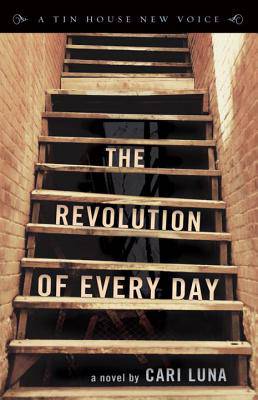
- Retrait gratuit dans votre magasin Club
- 7.000.000 titres dans notre catalogue
- Payer en toute sécurité
- Toujours un magasin près de chez vous
- Retrait gratuit dans votre magasin Club
- 7.000.0000 titres dans notre catalogue
- Payer en toute sécurité
- Toujours un magasin près de chez vous
22,45 €
+ 44 points
Récompenses
Description
In the midnineties, New York's Lower East Side contained a city within its shadows: a community of squatters who staked their claims on abandoned tenements and lived and worked within their own parameters, accountable to no one but each other. On May 30, 1995, the NYPD rolled an armored tank down East Thirteenth Street and hundreds of police officers in riot gear mobilized to evict a few dozen squatters from two buildings. With gritty prose and vivid descriptions, Cari Luna's debut novel, The Revolution of Every Day, imagines the lives of five squatters from that time. But almost more threatening than the city lawyers and the private developers trying to evict them are the rifts within their community. Amelia, taken in by Gerrit as a teen runaway seven years earlier, is now pregnant by his best friend, Steve. Anne, married to Steve, is questioning her commitment to the squatter lifestyle. Cat, a fading legend of the downtown scene and unwitting leader of one of the squats, succumbs to heroin. The misunderstandings and assumptions, the secrets and the dissolution of the hope that originally bound these five threaten to destroy their homes as surely as the city's battering rams. Amid this chaos, Amelia struggles with her ambivalence about becoming a mother while knowing that her pregnancy has given her fellow squatters a renewed purpose to their fight--securing the squats for the next generation. Told from multiple points of view, The Revolution of Every Day shows readers a life that few people, including the New Yorkers who passed the squats every day, know about or understand.
Spécifications
Parties prenantes
- Auteur(s) :
- Editeur:
Contenu
- Nombre de pages :
- 392
- Langue:
- Anglais
- Collection :
Caractéristiques
- EAN:
- 9781935639640
- Date de parution :
- 24-09-13
- Format:
- Livre broché
- Format numérique:
- Trade paperback (VS)
- Dimensions :
- 127 mm x 196 mm
- Poids :
- 439 g

Les avis
Nous publions uniquement les avis qui respectent les conditions requises. Consultez nos conditions pour les avis.








